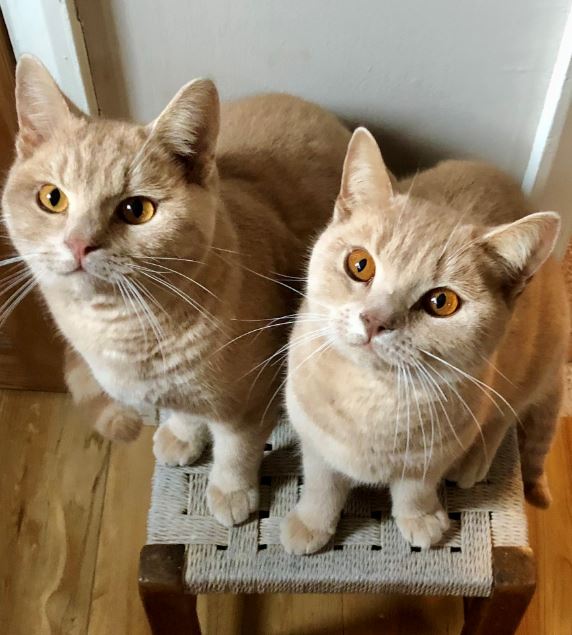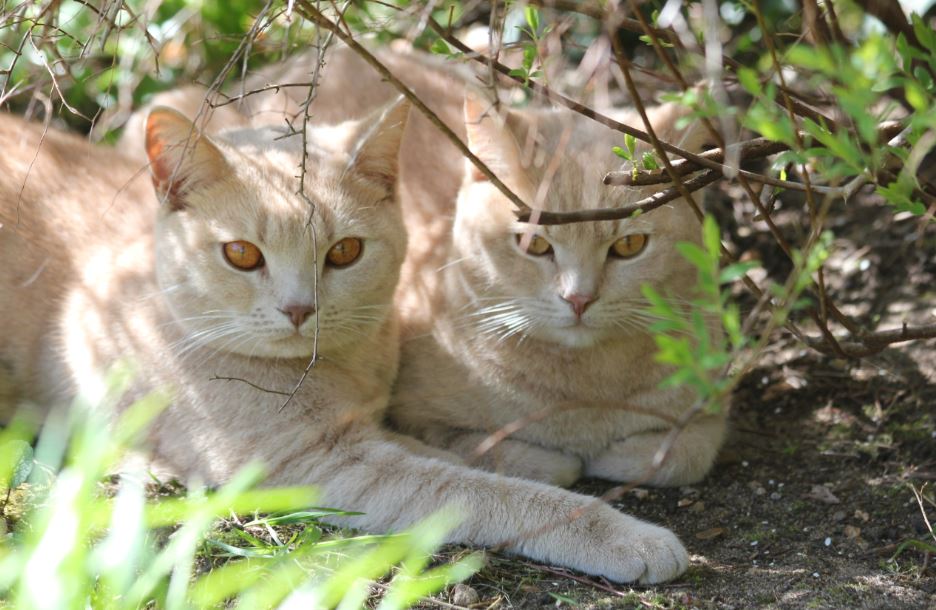It can be a hugely exciting time to welcome a new puppy or kitten into your family. You’ve done all your research, and you have a really good feeling that your new addition is going to be healthy and fit right in as a new family member!
But how sure can you really be that your new bundle of fur won’t end up becoming poorly sooner than you expected? And what can you put in place to help protect you, should the worst happen? Jane, Director of The Vet, shares an eye-opening tale below, and explains why she’s so grateful that she took out a good quality pet insurance product from the off!
In 2018, I decided to purchase two British Shorthair kittens as a few months earlier we sadly lost our 16-year-old Burmese cross, and the house was feeling very quiet. I found a breeder and went to see the litter that had been born recently and instantly fell in love!
Making sure to tick all the boxes when choosing a new member of the family, I made sure that the parents were also available to see, who were both in good health. The kittens themselves were all bursting with energy too which was a great sign. I chose two kittens; one was a little reserved in character, who we named Eggsy, and the other was the biggest in the litter named Harry, and he clearly loved being the centre of attention!
Due to my experience at The Vet, I knew the importance of not bringing a new pet home too young. So, in February 2019 I collected them both at 12 weeks of age. They had been checked by a vet twice, and had both been vaccinated, flea’d and wormed.
At this point, I also immediately got them both insured with Vetsure. The Vet are part of the Vetsure Pet Insurance network meaning they will work directly with our practices to process claims, taking stress off the shoulders of the pet owner, should they need to make a claim. I have been a veterinary nurse for 16 years and worked in the sector for 30 years. I was certainly well-aware that specialist work is an area of expertise that is extremely costly, so insurance was a must-have on the new-kittens’ shopping list for me.
The first 7 months were uneventful, they both grew normally, started going outside and were loving life! I had them both neutered and expected them to demand more food and overeat, as cats often do once they’ve been castrated. Eggsy followed that pattern but his brother Harry did not. In fact, Harry started to become fussier about his food, losing weight and becoming a little quieter. I put this down to his father having a more laid-back character and the fact that he was now less ‘kitten like’ and put it to the back of my mind.
In February 2020 at around 13 months old, Harry was still looking lean but fit, but suddenly started to lose balance jumping up onto surfaces. He would hide in corners, and eventually he would just stand staring at the wall and begun vomiting. All warning signs that something wasn’t right!

I took him straight in to see one of our vets, as I suspected he may have ingested something toxic. We ran a full blood profile, ultrasound and x-rays and intravenous fluids. It was a really worrying time, but I had incredible peace of mind knowing that I had my Premier Plus ‘£5,000 per condition’ insurance policy in place with Vetsure. It meant I could just focus on Harry, getting a diagnosis and treatment, and maximising his chances of getting better.
The bloods showed abnormal liver values, and the ultrasound scan showed some possible abnormalities too. Given his young age the recommendation was to refer to Southern Counties Veterinary Specialists.
It was an extremely stressful day when we discovered that Harry had an extremely rare condition which meant his liver had developed abnormally. He struggled with everyday functions, which affected his brain and co-ordination. The condition has only been reported once in a kitten, and a few times in Boxer dogs worldwide so I really did have an interesting and challenging cat to look after! Meanwhile his brother was absolutely fine, and to this day has had no ill health whatsoever.
Treatment was available although the long-term outlook was unknown due to the rarity of his condition. However, after 3 months of antibiotics Harry was a new cat and had a great summer jumping on his brother and playing in the garden.
I hoped that was the end of Harry’s ordeal and all was well until October 2020 when he became depressed again. Another trip to the vet showed an extremely high temperature and overwhelming infection, which required more blood tests, x-rays and antibiotics, and a trip to an overnight hospital. We hoped this was a simple infection but on arriving at the hospital to collect him in the morning he was struggling to breathe and was in an oxygen cage. Again, we were referred, this time to Optivet where another condition-pyothorax, was diagnosed.
Poor Harry was struggling to breathe as he couldn’t expand his lungs due to the pus in his chest cavity, which was a life-threatening emergency.
Amongst this doom and gloom, we were lucky that our policy was lifelong. All Vetsure policies are lifelong, and benefit limits ‘recharge’ every year, so our £5,000 limit per condition was available to us, and will be available again in future years should he need it. We were also reassured that we had only needed to pay the Vetsure excess amount ONCE for each of Harry’s two separate conditions, across all the treatment he received for them. Many pet insurers apply an excess per condition, per year – which means costs can mount up for long term conditions that span more than one policy year.
Harry was anesthetised and he went off for his treatment which meant another overnight stay on fluids and antibiotics. This was then followed by 6 weeks of 3 different types of antibiotics every 6 hours to ensure the infection had gone.
Treatment at home also required a high level of commitment, but Harry was a great patient and took his antibiotics without any fighting. And a fighter he is! We are now into February 2021, he has been off antibiotics for 8 weeks and he is again tearing around the house. It’s funny to think of all Harry has been through when you see him now, cuddled up with his brother without a care in the world.
We never want pet owners to struggle financially if their beloved companion becomes ill or suffers an injury. That’s why we suggest that our customers consider taking out a good quality pet insurance product to help protect them in the event that they become poorly, like poor Harry. The Vet work very closely with us at Vetsure, and promote our Vetsure Pet Insurance, but that’s not the only option.
In total, over the course of 12 months, Jane’s vet bills for Harry have come to £9506.50, the vast majority of which has been fully covered by Vetsure. The only costs Vetsure were unable to cover were Jane’s chosen excess for each of Harry’s two unrelated conditions and a small amount that went over the yearly policy limit for his complex and rare liver condition. This eye-watering total certainly puts the importance of decent pet insurance policy into perspective. If you take one thing away from Jane’s story, it’s that you truly never know what’s around the corner when you take on a lively new family member in the form of a kitten or puppy. As such, doing your homework when it comes to pet insurance is a must. Look into all the possible insurers, check their reviews on sites like Trustpilot, and decide which policy is right for your circumstances. You never know how essential it may become!

 The Vetsure Network
The Vetsure Network  Find a Vet Clinic
Find a Vet Clinic 